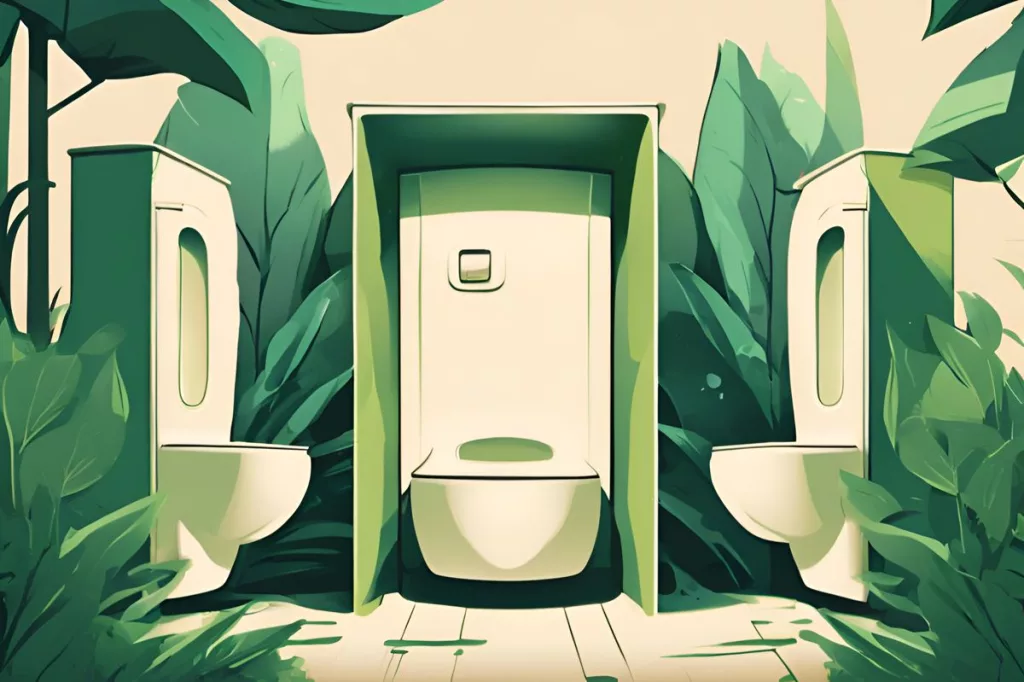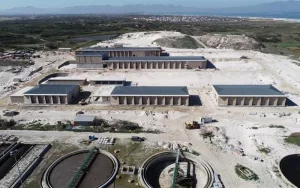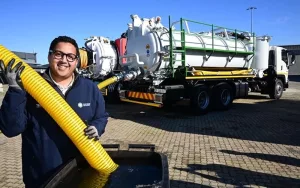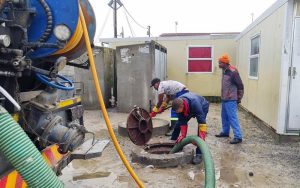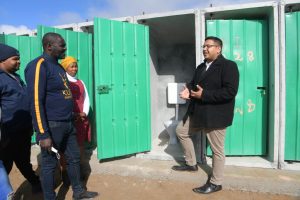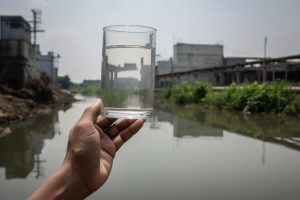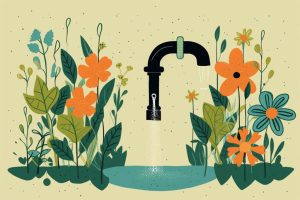The Innovative Sanitation Technology pilot project in Cape Town is a groundbreaking effort to improve toilets in five informal settlements. Launched on October 1, 2024, this initiative uses ecofriendly, nonsewered toilets to boost health and dignity for residents. With strong community involvement and support from organizations like the Bill & Melinda Gates Foundation, the project aims to tackle the sanitation challenges faced by these underserved areas. By embracing advanced technology and sustainable practices, Cape Town is paving the way for a brighter, cleaner future for its communities. This project shows how smart solutions can create hope and change lives.
Cape Town has received a massive R5 billion budget for water and sanitation services in the 2024/2025 fiscal year. The funds will be used to secure the city’s water future, ensure access to highquality drinking water, address sewer overflows, and provide satisfactory sanitation services in informal settlements. The investment demonstrates the city’s dedication to its residents and its readiness to tackle future challenges with innovative and sustainable solutions. The capital budget allocation is diverse, addressing a variety of needs, including proactive measures for sewer overflows, flood mitigation projects, and pollution reduction initiatives.
South Africa’s Department of Water and Sanitation is taking a new approach to tackle water and sanitation challenges in the country. The plan includes community outreach programs, diversifying water sources, and enhancing access to water and sanitation services. The department is also collaborating with municipalities and the private sector to achieve its objectives and improve the standard of living for all South Africans. The strategy aims to address challenges such as water scarcity, inadequate access to water and sanitation services, and decaying municipal water and sanitation services.
Embracing Technological Innovation: Cape Town’s Water and Sanitation Directorate’s Fleet Revamp
Cape Town’s Water and Sanitation Directorate has invested over R105 million in a fleet of advanced vehicles and equipment to improve the city’s water and sanitation systems, including unclogging sewer blockages and ensuring water supply during disruptions. The new fleet includes advanced jetmachine trucks, combinationunit trucks, and supersucker trucks, as well as a mobile laboratory for offsite water testing. The investment emphasizes the importance of technology in improving essential services while emphasizing the mindful behavior of residents in preserving the city’s systems.
Aiming for Water Sustainability in South Africa: A Critique of the 2024/25 Water and Sanitation Department Budget Vote
South Africa is facing a water crisis due to factors such as population growth, climate change, and economic advancements. The Water and Sanitation Department is responsible for managing the country’s valuable water resources to generate longterm environmental, social, and economic gains. However, the provision of water and sanitation services remains uneven across the country, with some regions having universal access while others have no access at all. The government has stepped up its support to municipalities to address these problems, but better planning and implementation of projects are needed to meet the escalating demand.
Annual Survey by the Cape Town Water and Sanitation Directorate: A Path towards Improvement
The Cape Town Water and Sanitation Directorate is launching its annual Customer Satisfaction Survey from April to June 2024. The survey aims to assess the happiness of Cape Town’s inhabitants and businesses regarding the city’s water and sanitation services. It covers both official and unofficial residents and businesses, giving the City crucial feedback to understand citizens’ everyday experiences and improve service delivery. The City guarantees the highest level of confidentiality and hires an independent research agency to ensure integrity and promote a culture of joint governance. Participating in the survey is an opportunity for residents and businesses to shape the City’s future.
Loowatt, a private toilet service in South Africa, charges R350 per month for its offering that includes maintenance. The service is spearheaded by Loowatt and Khanyisa Projects, and it promotes the production of locallymade toilets that bolster business growth and sustainability. Despite the positive progress, South Africa’s informal settlements still face a need for accessible, secure, and private home sanitation services that reflects an inhabitant’s aspiration for dignity and respect.
Toilets in Cape Town’s RR Section informal settlement have been overflowing with waste for almost a month due to a local extortion group targeting the cleaning company responsible for maintaining the facilities. The group demanded money for protection and threatened to kill workers if they returned without paying. Residents have been left with no choice but to use alternative methods such as buckets or going outside. The situation highlights the negative impact of extortion on service delivery and the daily lives of residents, prompting Cape Town Mayor Geordin HillLewis to initiate an AntiExtortion Campaign.
Water and Sanitation Minister, Senzo Mchunu, has scheduled an oversight visit to assess Emfuleni Section 63 Intervention Projects in the Sedibeng District on August 29, 2023. The projects are aimed at addressing water and sanitation challenges in the region, particularly within the Emfuleni and Midvaal Local Municipalities.
The Water and Sanitation Directorate of the City of Cape Town proudly announces the successful utilisation of 95% of its capital budget for the 2022/23 fiscal year. The accomplishment reinforces the city’s commitment to investing in vital infrastructure to ensure the provision of highquality drinking water and dignified sanitation, particularly in informal settlements.
Education has the power to transform lives, and Kagiso Komane’s story is a testament to this. Despite facing many challenges, Komane overcame them to achieve his Masters of Applied Sciences in Chemistry from the Tshwane University of Technology in 2022, thanks to the Department of Water and Sanitation’s bursary program.
In Cape Town, during a season of heavy rain, citizens are encouraged to report water and sanitationrelated issues, such as sewer overflows, by using the city’s official reporting channels. The convenience and ease of WhatsApp make it a suitable platform for residents to assist the Water and Sanitation Directorate in preserving and improving the system.
On June 9, 2023, Minister Senzo Mchunu, accompanied by his deputies Ms. Judith Tshabalala and Mr. David Mahlobo, visited Lekwa Local Municipality to evaluate the progress of intervention projects dedicated to addressing water and sanitation challenges. The purpose of the visit was to assess the impact of last year’s allocation of R350 million to the municipality and to engage with community members to ensure transparency and accountability.
Cape Town, a bustling coastal city in South Africa, is committed to investing R4.3 billion in water and sanitation infrastructure in the 2023/2024 financial year. This significant initiative showcases the Water and Sanitation Directorate’s dedication to providing access to highquality water and ensuring that communities do not suffer from sewer overflows. The city’s investment plan also strives to provide adequate sanitation in informal settlements, promoting a healthier environment for all residents.
The recent cholera outbreak in Hammanskraal, a community north of Tshwane, has prompted action from the Minister of Water and Sanitation, Mr. Senzo Mchunu, and the Executive Mayor of the City of Tshwane, Cllr Cilliers Brink, to address critical water and sanitation issues in the area.
The Western Cape Provincial Sanitation Task Team (PSTT) is a Department of Water and Sanitationled initiative that aims to provide adequate and equitable sanitation to the citizens of the Western Cape. In this article, we will take a closer look at the PSTT’s role in accelerating sanitation delivery in the region, including its alignment with the Sustainable Development Goal (SDG) 6.2 target and the National Development Plan (NDP) 2030 vision.

